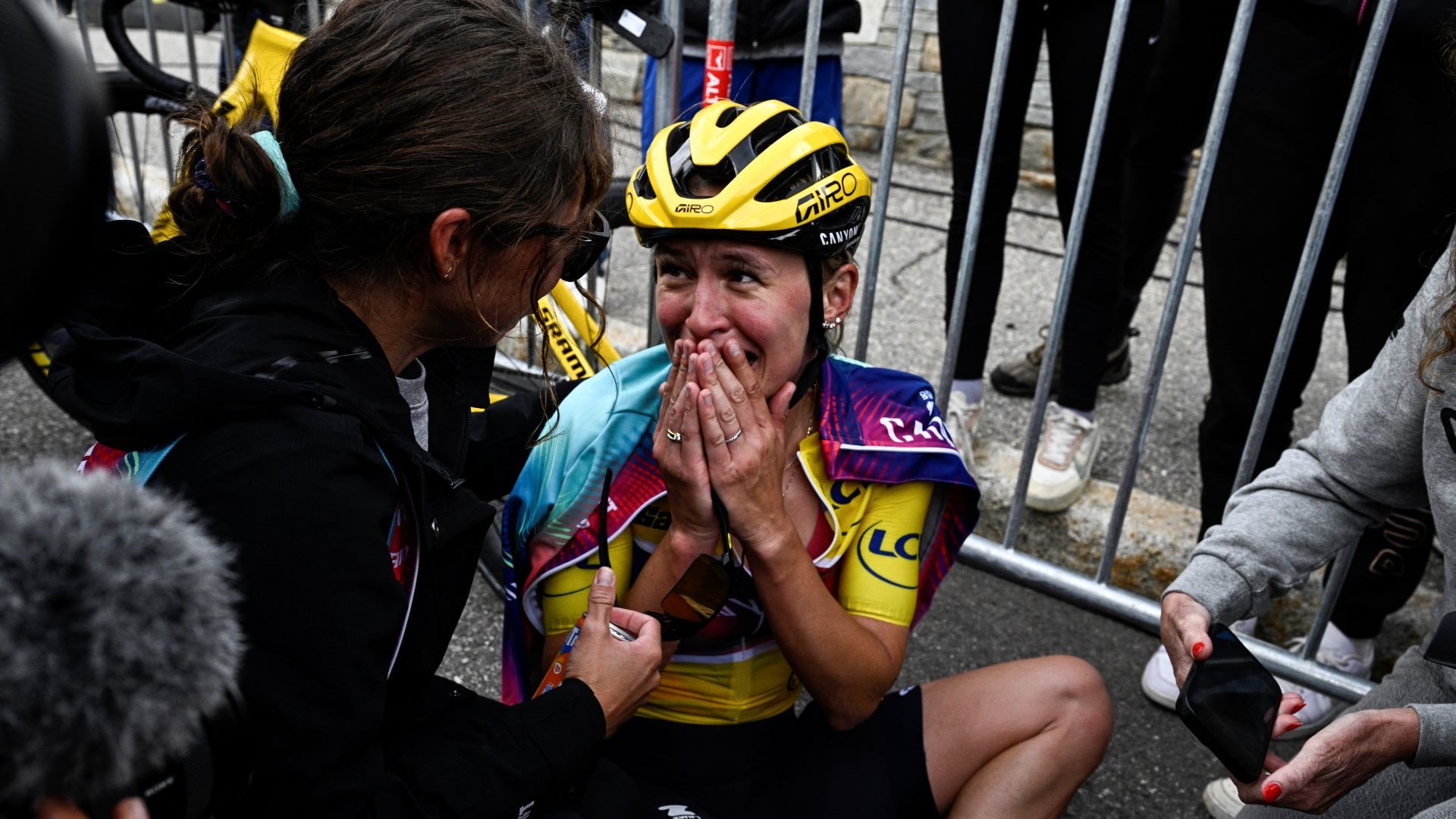
The final stage of the 2024 Tour de France avec Zwift was a game of maths. After seven days of racing covering 950 kilometres and 13,566m of elevation victory, the third edition of the women's Tour came down to just four measly seconds — the smallest margin of victory in Tour de France history.
The final stage of the 2024 Tour de France Femmes was also the Queen Stage, featuring a gruelling 150 kilometres (90 miles) with 3,900 meters (12,795 feet) of climbing, largely accumulated on the formidable Col du Glandon (19.7 km at 7.2%) and the legendary Alpe d’Huez (13.8 km at 8.1%).
Entering the grand finale, the top 10 riders in the General Classification were all within 1 minute and 27 seconds. Kasia Niewiadoma (Canyon-SRAM) held the yellow jersey with a slim 27 seconds, while race favourite and defending champion Demi Vollering (SD Worx-Protime) trailed by 1:15 — a gap her team believed could be made up on the big climbs ahead.
But with six riders, including French climber Juliette Labous (dsm-Firmenich), breakout star Cédrine Kerbaol (Ceratizit-WNT), and Pauline Rooijakkers (Fenix-Deceuninck), squeezed between Niewiadoma and Vollering in the standings, the Alp stage was poised for drama.
The rebirth of a women’s Tour de France came to fruition in 2022. This historic event was won by Dutchwoman Annemiek van Vleuten (Movistar). She won by 3:48 over Demi Vollering (SD Worx). Kasia Niewiadoma finished in third place, 6:35 down from Van Vleuten.
Another Dutchwoman won the Tour in 2023. This time it was Demi Vollering (SD Worx) who won by 3:03 over teammate Lotte Kopecky. Kasia Niewiadome finished in third, also 3:03 down from Vollering.
The race-decisive move came on the Col du Glandon, where Vollering made her attack 2.4 kilometres from the top to catch lone leader Valentina Cavallar (Arkéa-B&B Hotels). Niewiadoma couldn't respond and was distanced immediately. Only Rooijakkers was able to go with her compatriot as they reeled in Cavallar, and the trio tackled the ripping Glandon descent together.
But Vollering, eager to put a gap between her and the yellow jersey pushed so hard down the descent that she distanced Cavallar. Into the valley, Rooijakkers and Vollering worked together to stay ahead of the chasing group containing Niewiadoma.
Fifty seconds. One minute. Forty-five seconds. The gap between the duo and the chasers occurred throughout the valley, and the math game began. Valuable bonus seconds awaited the top three riders at the finish: 10 seconds for the stage winner, 6 seconds for the runner-up, and 4 seconds for third place. Every second now mattered, and time gap updates buzzed through the earpieces of every team with GC ambitions.
Vollering needed to win the stage by 1:06 over Niewiadoma to take the yellow jersey away from Niewiadoma. Rooijakkers entered the final stage two seconds ahead of Vollering in the GC and, therefore, needed to outsprint Vollering and cross the line with a gap of 1:04 over Niewiadoma in order to slip into yellow.
However, Lucinda Brand (Lidl-Trek) put in a herculean effort at the front of the chase group, hoping to put the team's climber Gaia Realini into race contention. At the base of the fabled 21 bends of the Alpe d'Huez, the gap was down to 45 seconds—not enough for the leaders to seize the yellow, but the finish line was still a steep 13.8 kilometres away.
Behind the leaders, Niewiadoma gritted her teeth and fought tooth and nail to close down the gap and it stalled at 50 seconds. Realini and Evita Muzic (FDJ-SUEZ) started attacking Niewiadoma but the countdown had started. At the finish, Vollering outsprinted Rooijakkers to take the stage win and the valuable 10 bonus seconds. Niewiadoma sprinted to the line to stop the clock at 1:01, securing the yellow jersey by a meagre 4 seconds.
1. 1989 Tour de France: Greg LeMond won by just 8 seconds over Laurent Fignon.
2. 1947 Tour de France: Jean Robic won by just 14 seconds over Édouard Fachleitner.
3. 1968 Tour de France: Jan Janssen won by 38 seconds over Herman Van Springel.
These four seconds mark the smallest margin of victory in the Tour de France's history, which was previously 8 seconds, set in 1989 in a legendary battle between American Greg LeMond and Frenchman Laurent Fignon.
For the riders and their teams, the days following the race will undoubtedly be spent scrutinizing every moment, replaying the "what if" scenarios where each second counted.
For the sport of cycling, this razor-thin margin is a testament to the extraordinary level of competition in women's cycling and the depth of talent in the field. The 2024 Tour de France avec Zwift will be remembered for its dramatic conclusion and highlighting the intense and thrilling nature of women's cycling at its best.
"We all wrote history this week," commented Niewiadoma. "And we can be proud of that."







